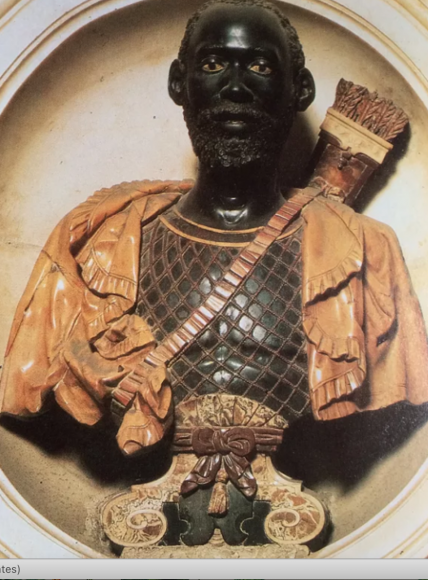What We're Reading

Michael Aidan Pope, Birkbeck, University of London.
José Lingna Nafafé, Lourenço da Silva Mendonça and the Black Atlantic Abolitionist Movement in the Seventeenth Century (2022).
In this monograph José Lingna Nafafé of the University of Bristol uses the figure of Lourenço da Silva Mendonça, a member of the Ndongo royal family, as a means of disrupting the history of slavery abolition. Exiled from his homeland in Angola in December 1671, Mendonça was sent to Brazil and then Portugal, before finally heading to the Italian Peninsula in 1684, via Spain, to present his case against the trans-Atlantic trade of enslaved people. And this court case, in which Mendonça called for the abolition of slavery, is the central focus of the text, what Lingna Nafafé sees as the culmination of the seventeenth century ‘Black Atlantic Abolition Movement’.
Larissa Brewer-Garcia, Beyond Babel: Translations of Blackness in Colonial Peru and New Granada (2020).
In this text Larissa Brewer-Garcia retrieves Black voices and Black histories from the colonial archives and centres them in the historiography of the early modern Iberian Atlantic. Alongside in-depth textual analysis of works by the likes of José de Acosta and Alonso de Sandoval, our understanding of the world in which these texts were produced is greatly amplified the recovery of figures such as Andrés Sacanuche and Francisco Yolofo. As result, we are shown the central role of Black interpreters in Catholic proselytising efforts of the era, and resultingly forced to ask the questions of who truly fashioned the content and effect of the catechism for the catechumens?
John W. O’Malley, Trent: What Happened at the Council (2013).
Self-described as the first overview of the Council of Trent, John W. O’Malley breaks down the subject area into less than 300 pages, in what is a very useful text for early modernists who need to know about Trent, without wanting to get bogged down in all its detail. Crucially, O’Malley positions the council as not only a response to the emergence of Luther and his protestations, but also as the result of the pressures of the reform movements present in Catholicism throughout much of the fifteenth century, as well as the wranglings of kings and popes. In doing so, this text attempts to ‘put to rest a few of the myths and misunderstandings’ still present in the historiography of the council.
Daniel R. Quiroga-Villamarín, The Graduate Institute Geneva.
Thomas Duve, “The School of Salamanca: A Case of Global Knowledge Production,” in The School of Salamanca: A Case of Global Knowledge Production, ed. Thomas Duve, José Luis Egío, and Christiane Birr (Leiden: Brill, 2021), 1–42, https://doi.org/10.1163/9789004449749.
How can one localize the “School of Salamanca”? In this opening chapter (which is part of a broader project on law in the Iberian Worlds), Duve shows what a “global history” approach to the study of this school of Catholic natural legal thought can bring to our understanding of early modern international normative projects. In that sense, he sheds light on the imperial reach and geographical extent of the legal production of knowledge that emanated from the rather local Convento de San Esteban.
Gerry J. Simpson, The Sentimental Life of International Law: Literature, Language, and Longing in World Politics (Oxford: Oxford University Press, 2021). https://doi.org/10.1093/oso/9780192849793.001.0001
In his most recent monograph, Simpson draws from a long career of work on the intersections of literature and international law to rethink our understanding of the latter field. By undertaking what he aptly calls a “belle-lettre insurgency” that refrains from the typical aspiration of the discipline to claim relevance or expertise (p. 6), Simpson offers a new reading of the affective investments of our professional practices.
Fuad Zarbiyev and Spyridoula Katsoni, “Chatting with Fuad Zarbiyev,” Völkerrechtsblog, November 18, 2022, https://doi.org/10.17176/20221118-095458-0.
In this remarkably candid and fun interview (which is part of a broader series of think pieces on “The Person behind the Academic”) PhD Candidate Sissy Katsoni interviews Professor Fuad Zarbiyev. While the interview and series are geared towards international lawyers, I hope their conversation on reading and writing can also be relevant for scholars beyond the field. In particular, I suspect that their reflections about what it means for a lawyer to be “international” can be relevant for “global” historians too.